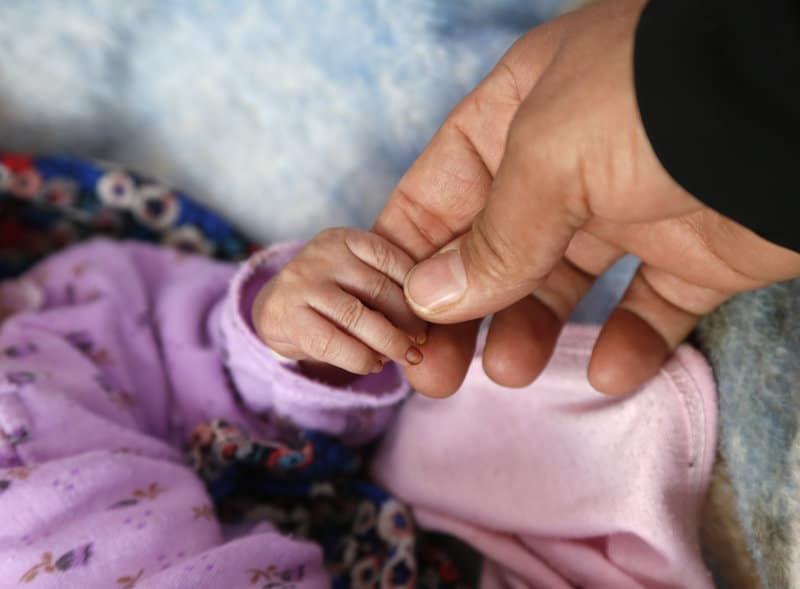People cannot care about kids starving in Yemen if they don’t know kids are starving in Yemen. That’s where you come in.
Scott Horton

SANA’A, YEMEN – DECEMBER 13: A nurse checks a child who is suffering malnutrition at a hospital receiving treatment on December 13, 2020 in Sana’a, Yemen. (Photo by Mohammed Hamoud/Getty Images)
“Losing my child while I am watching is breaking my heart,” Mohammed Yousuf says as he tries to calm his crying son. “I feel so worried for my son. I won’t rest until my son is completely healed.”
Yousuf lives in Yemen. His 1-year-old son, Abdullah, has been at a health facility in Sanaa, the capital, where doctors are feeding him reconstituted milk from powder formulated for children with malnutrition to keep him alive.
On Dec. 5, Abdullah weighed 6 pounds on his fifth day of treatment for severe acute malnutrition, says his attending clinician, Dr. Abdelmalek Mohammed. That’s less than one-third of the average weight for his age. The doctor’s diagnosis of severe acute malnutrition is a medical classification reserved for the worst cases. Yousuf and his wife, Fadiah, traveled 15 hours by bus through dozens of military checkpoints to bring their child to the facility in Sanaa. He spoke to NPR by phone.
(NPR has withheld the family names of the parents and doctor because of concerns about their safety.)
In Yemen today, 1 in 5 children are severely malnourished, according to U.N. reports. The 5-year-old civil war has caused the country to plunge deeper into poverty that has been exacerbated by floods and locusts. And even when there is food available, a 3-year-old, Saudi-led blockade restricts goods coming into the country by land, sea and air. The resulting delays increase the cost of basic necessities such as food.
And for many Yemenis, any price is too high. Yousuf lost his job as a farm laborer last year when farmers couldn’t get diesel — required to run the pumps for irrigation and drinking water — because of fuel shortages caused by the war. Now his family depends completely on aid, which he says allows them to eat one small daily meal.
More here






























![The Kyle Anzalone Show [GUEST] Dave DeCamp: BREAKING: Tucker Carlson detained in ISRAEL! – Trump’s Iran Strategy Exposed!](https://offload-wp-files.sfo3.digitaloceanspaces.com/2026/02/Screenshot-2026-02-27-115531-400x250.png)
